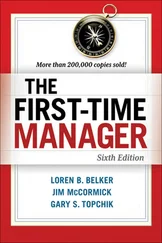Джон Болл - The First Team
Здесь есть возможность читать онлайн «Джон Болл - The First Team» весь текст электронной книги совершенно бесплатно (целиком полную версию без сокращений). В некоторых случаях можно слушать аудио, скачать через торрент в формате fb2 и присутствует краткое содержание. Год выпуска: 2013, Жанр: Триллер, на английском языке. Описание произведения, (предисловие) а так же отзывы посетителей доступны на портале библиотеки ЛибКат.
- Название:The First Team
- Автор:
- Жанр:
- Год:2013
- ISBN:нет данных
- Рейтинг книги:5 / 5. Голосов: 1
-
Избранное:Добавить в избранное
- Отзывы:
-
Ваша оценка:
- 100
- 1
- 2
- 3
- 4
- 5
The First Team: краткое содержание, описание и аннотация
Предлагаем к чтению аннотацию, описание, краткое содержание или предисловие (зависит от того, что написал сам автор книги «The First Team»). Если вы не нашли необходимую информацию о книге — напишите в комментариях, мы постараемся отыскать её.
Student protesters are being slaughtered in the Midwest.
The Jewish pogroms have begun.
You are now living in Soviet — occupied America!
One nuclear submarine and a handful of determined patriots against the combined might of Russia and Soviet-occupied America… The Most Explosive and Gripping “What If” Novel of Our Time!
First published January 1971
The First Team — читать онлайн бесплатно полную книгу (весь текст) целиком
Ниже представлен текст книги, разбитый по страницам. Система сохранения места последней прочитанной страницы, позволяет с удобством читать онлайн бесплатно книгу «The First Team», без необходимости каждый раз заново искать на чём Вы остановились. Поставьте закладку, и сможете в любой момент перейти на страницу, на которой закончили чтение.
Интервал:
Закладка:
Only Nat knew that in this midst of plenty Orberg had a method for marking the slips he chose to select; as he gathered them in he would press the edge of his thumbnail into the offering of any face that caught his eye, or any figure that triggered his imagination.
Once he had erred; Nat had phoned a twenty-two-year-old (or so she had described herself) where the indentation had been particularly deep, made in all probability by the girl herself while she had been desperately waiting for the opportunity to offer herself. Marc had said, “Get me a woman,” which differed from his more usual request for a girl; following instructions Nat had chosen the twenty-two-year-old who properly answered the description. The usual tactful phone call had as almost always been successful and within an hour the subject presented herself. She proved to be plain, somewhat overweight, and adorned with practical glasses. Orberg was at first in a concealed rage of frustration, but when the girl had gotten her clothes off, her body had been riper than he had expected and the resulting experience far beyond his expectations. For some time he had avoided repeating himself, but for this particular person he had broken his rule not once, but four separate times. There was no form of sexual gratification that she was not prepared to offer to her idol, and that in itself was a considerable improvement over the often frightened, tightly thrilled youngsters who had described themselves in writing as eighteen and who were hesitantly willing to be laid, but nothing more. After a while these little virgins began to annoy him and he looked for more capable companionship.
The conquest of the United States he did not expect to hurt his popularity in the least. If the people who had taken over knew anything at all about the country, they would know what he had been doing for them. They had talked together often enough in Cuba, Hanoi, and Moscow; they had praised his good work and had promised him that when the day came he would not be forgotten. That was all right as far as it went; he would decide later on whether he wanted to cooperate with them or not. He had done the TV stint for them simply as an exercise in virtuosity; after building an enormous reputation as a dynamic leader of violent protest, after becoming the number one law-defying rebel symbol of the hard left, it had given him great satisfaction to put on the character of the inherently wholesome-after-all young man and con the whole damn country into believing in him. He could do anything to them that he wanted to, he had proven that; and they couldn’t do anything to him. They had been trying for years but his popularity in his own generation was too great.
For the lack of anything else to do he picked up a guitar, checked that it was reasonably in tune, and then turned on a tape recorder. He had several of them built in so that when he wanted one it would be available. The concealed one in the bedroom had produced some rare moments of interesting listening, but that did not concern him now. He was about to turn on what had been described once by a reviewer as his “outstanding talents as a composer.”
He seated himself on the edge of the zebra-striped lounge and picked purposelessly at the strings. He let his fingers do as they liked, searching for a possible bit of novel rhythm. He was only a rudimentary musician; his great talent lay in his way of manipulating audiences. His singing voice was only passable, but with it he could do remarkable bits of histrionics whenever he liked.
He decided to concentrate on what he was doing; he did not feel like composing very often and if he got something good right now, it could be another million-copy record. With no more income tax to pay, that would be a sweet addition to the considerable fortune Nat had already managed to stash away for him. He would never have to work again as long as he lived, which suited him precisely. He had never worked at all in the strict sense of the word; his personal appearances were only fun to him. The lack of experience in this area did not trouble him.
He had it! Somehow his fingers had traced out a little rhythmic pattern, first slowly, then faster, which had a beat to it. He leaned forward and plucked it out again: ti — da — de — dum; ti-da-di-dum. Ti — da — di — dum; ti-da-di-dum. He had a vague feeling that he might have heard it before someplace, but so what. He began to seek out words in his mind, then a pawky idea hit him. It would be a simple song about the farm on which he had grown up. Or so the song would say. He would be homesick for the farm. For the wind-polished twin hills to the north, for the little triangle of woods down in the hollow by the stream. And the old well in the yard. The old well — that would make the navel. How long, he wondered, would it be before the saps woke up to what he was really singing about.
An hour later he had it down on tape. When the pieces were all assembled, and he had added several other little touches to his liking, he started the tape once more and did the whole thing straight through. It took him two minutes and twenty-five seconds, enough for a forty-five single, or if he had to, he could add another verse.
When he had finished, he stretched out on his back, his arms thrown high, letting his head roll slowly from side to side in an exercise of pure animal delight. Inaction was beginning to weigh on him and he craved some of the excitement on which he thrived. He had promised to be the first to greet and welcome the invaders on American soil; he wondered if he should do something about that. He could go and call on that clown Zalinsky in Washington, but it might be better just to let him wait.
Zalinsky sent for Hewlitt at fourteen minutes after three. This time it was not by telephone. The messenger who had brought him the speech to translate appeared without warning at the door of the office, his broad face as wooden as ever. For a sharp instant Hewlitt wondered if the sudden arrival of the soldier meant that the time had come for him to be taken out on the South Lawn for the ending of his life. Then he received his instructions. He picked up pad and pencils and went to face the man who had summoned him.
One change in the office Hewlitt noticed at once — the framed portrait of a Slavic-looking foreign officer hung on the wall. As he noted it he made a quick decision not to enquire about it.
He sat down without being invited this time and waited to see what was in the wind. He could feel that he was less tight now, that his nerves were not as taut.
Zalinsky looked up from his work, studied Hewlitt for a moment, and then spoke. “You have for some time not been doing work to earn your pay.”
Hewlitt refused to be put on the defensive. “I have been available,” he answered.
“But you have done nothing.”
“The President and the Department of State kept me quite busy.” He kept his voice quiet and factual.
“So you blame me.”
Hewlitt decided not to press his luck any further. “When you have had a chance to become more familiar here, Mr. Zalinsky, you will probably have a greater need and use for the White House staff.”
Zalinsky pondered for a moment and then decided to break it off. “I have now an announcement for you,” he said. “The days you have been enjoying of nothing doing are over. You will move at once to the office just outside this one. There you will keep watch to the people who come and go. For this I select you because you can talk to my own people.”
“You mean that I will be your appointment secretary.”
Zalinsky showed him a palm. “Such names we do not employ in my country and I will not hire them here. If you wish a name, you will be watchdog. I will state to you who it is I wish to see. If others arrive, you will advise me and reverse those who I do not wish to allow. You understand?”
Читать дальшеИнтервал:
Закладка:
Похожие книги на «The First Team»
Представляем Вашему вниманию похожие книги на «The First Team» списком для выбора. Мы отобрали схожую по названию и смыслу литературу в надежде предоставить читателям больше вариантов отыскать новые, интересные, ещё непрочитанные произведения.
Обсуждение, отзывы о книге «The First Team» и просто собственные мнения читателей. Оставьте ваши комментарии, напишите, что Вы думаете о произведении, его смысле или главных героях. Укажите что конкретно понравилось, а что нет, и почему Вы так считаете.












